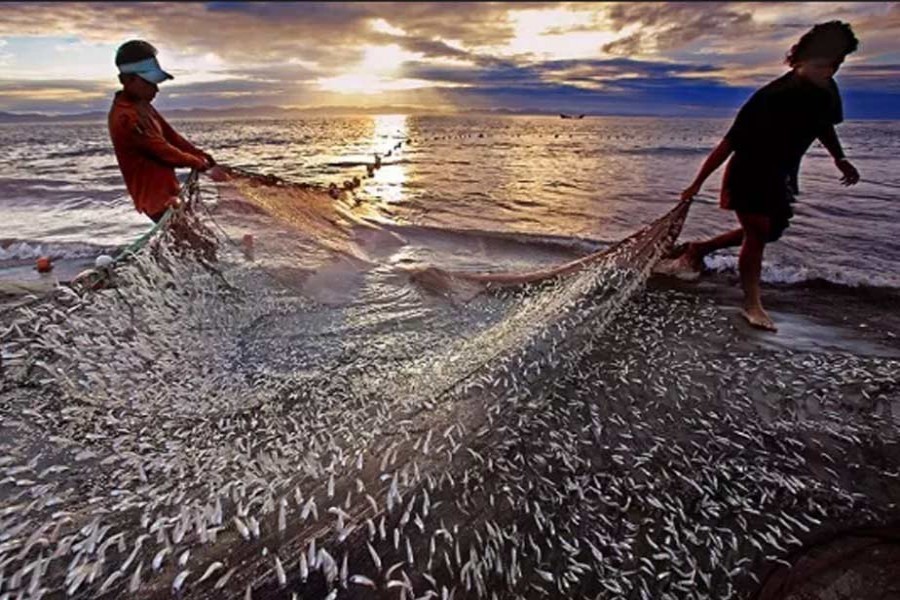
Published :
Updated :

A staggering 56 percent of the small-scale fishermen remain excluded from the government aid during the ban on fishing forcing 70 percent of them to take informal and exploitative loans, said a new study on Monday.
The situation often compels members of the marginalised community to fish illegally for survival, it added, saying that 83 percent of the fishermen receive assistance one to two months after the ban period ends.
COAST Foundation shared the survey findings at a news conference titled "Not Just Imposing Fishing Ban, We Demand Safe Alternative Livelihoods to Ensure Equitable Support for Small-scale Fishers" at the Dhaka Reporters Unity in the city.
Moreover, 87 percent of the fishermen have no access to income generating activity or skill development programme.
Domestic violence in fishermen families increases by 30-40 percent during ban periods due to financial hardships.
The study suggested enforcing strict measures against illegal nets and a complete ban on operation of the net producing factories.
Speakers at the conference expressed concern over the decline in Hilsa catches, delay in support distribution, recurring natural disasters, lack of alternative income, biodiversity degradation, privatisation of fishing zones, and rising informal debt bondage, which have trapped members of the fishermen community into deep socioeconomic hardships.
They urged the government to ensure timely support and expand IGA (Income Generating Activities) programmes for small-scale fishermen, especially women and youth, alongside transparent selection and distribution processes.
M Rezaul Karim Chowdhury, executive director, COAST Foundation, said, "Fishing bans are essential for Hilsa regeneration, but that cannot mean hunger. The government must provide 40 kg rice and Tk 8,000 to every registered fishing household before the ban starts and ensure IGA-based work for at least one family member."
He also stressed the need for providing vocational training to the youth fishers for finding alternative IGA.
He noted that the manta fishers (the fishers who live in the small boats in the canals or small rivers) must have the fisher cards and be kept out of the fishing ban.
Sanat Kumar Bhowmik, deputy executive director, COAST Foundation, presented the keynote paper.
The speakers collectively called for timely food and money distribution, inclusive IGA opportunities, low-interest credit, and equitable inclusion of marginalised fishermen communities in all government programmes to ensure that no fishermen family goes hungry during fishing bans.
nsrafsanju@gmail.com


 For all latest news, follow The Financial Express Google News channel.
For all latest news, follow The Financial Express Google News channel.